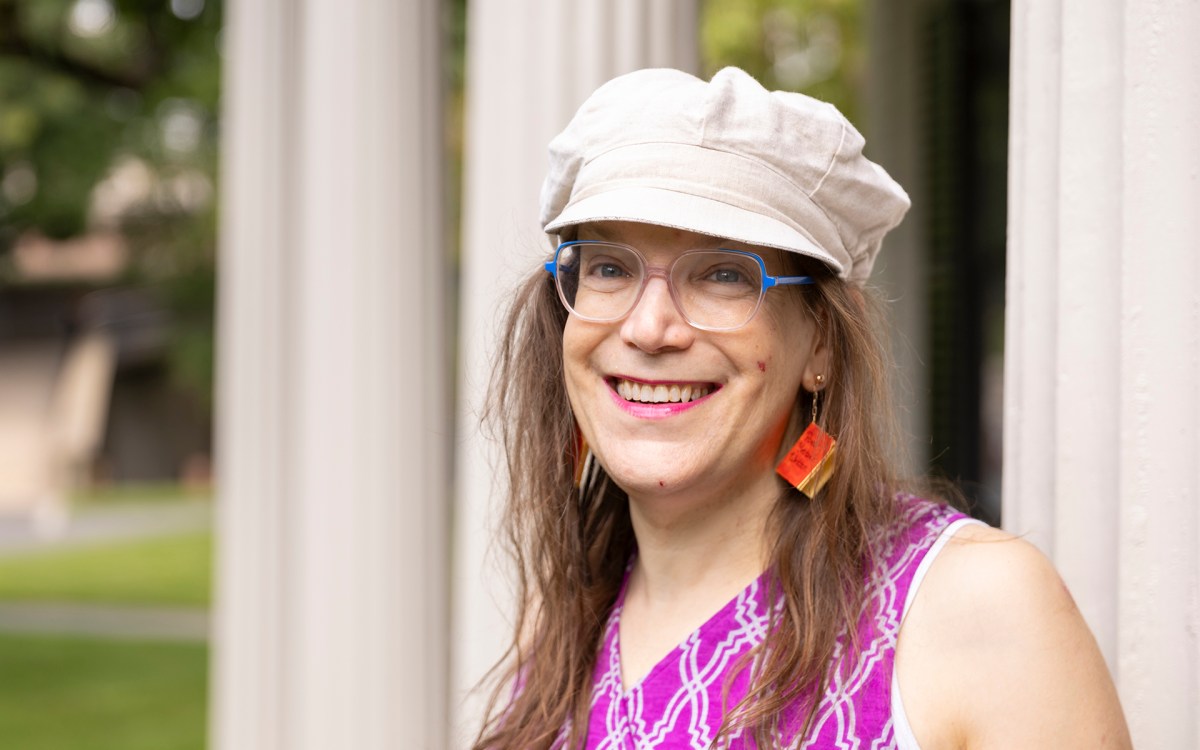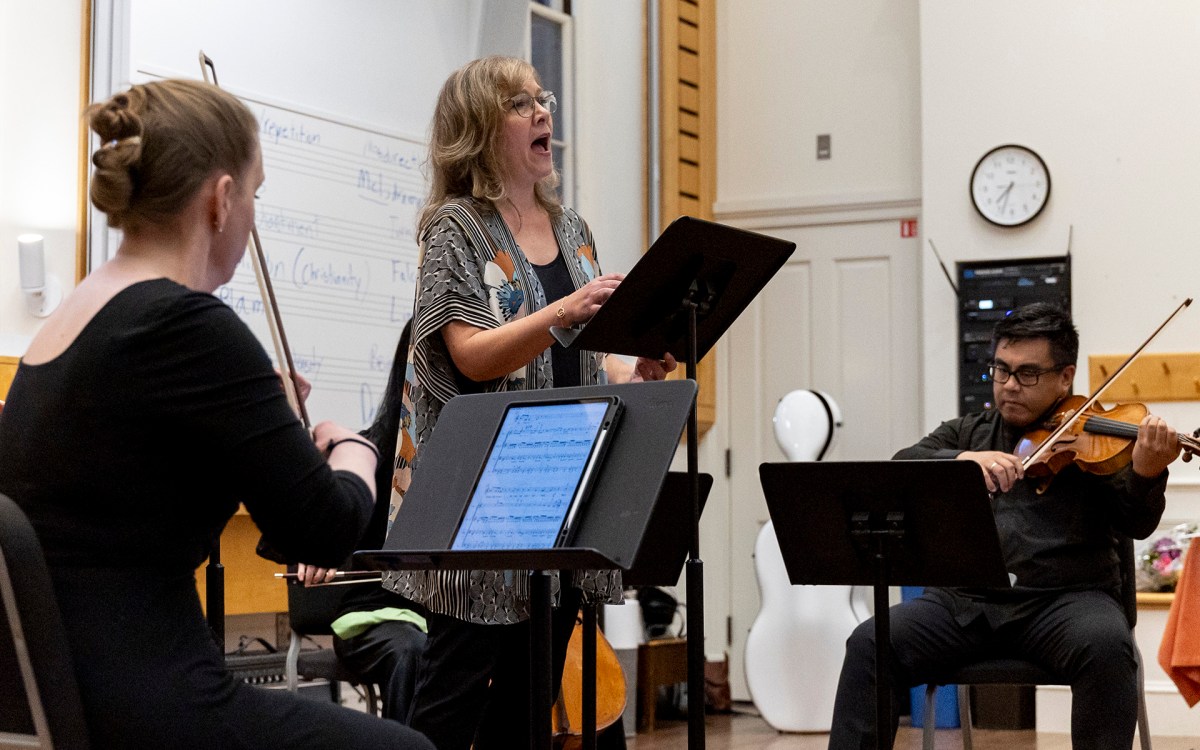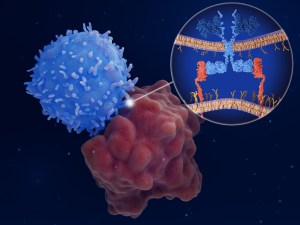Arts & Culture
-

When trash becomes a universe
Artist collective brings ‘intraterrestrial’ worlds to Peabody Museum
-

Need a good summer read?
Whether your seasonal plans include vacations or staycations, you’ll be transported if you’ve got a great book. Harvard Library staff share their faves.
-

From bad to worse
Harvard faculty recommend bios of infamous historical figures
-

From ‘joyous’ to ‘erotically engaged’ to ‘white-hot angry’
Stephanie Burt’s new anthology rounds up 51 works by queer and trans poets spanning generations
-

What good is writing anyway?
Scholars across range of disciplines weigh in on value of the activity amid rise of generative AI systems
-

Talking about music doesn’t have to be difficult
Yeats poem inspires 3 songs and deep listening, discussion at Mahindra event
-
Puzzling through Yeats with Helen Vendler
Helen Vendler knows a thing or two about William Butler Yeats. She has authored three books on the Irish poet’s work, including her most recent volume, “Our Secret Discipline: Yeats and Lyric Form,” published in 2007.
-
Looking at race, racism through a philosophical lens
Tommie Shelby’s airy office in the Barker Center is piled with papers. His desk is a blanket of white. Books and academic journals litter the floor. The look is, in a word, chaotic. The scholar is anything but.
-
How the ‘talking machine’ allowed music and dance to cross oceans
In the late 1920s, with the advent of new technology, gramophone and “talking machine” companies were able to capture the sounds and rhythms of life in cities across the globe. From New York to Havana, Paris to Honolulu, labels like Victor, Gramophone Company, and Okeh competed to record vernacular music.
-
Houghton joins with libraries nationwide to celebrate artists’ retreat
HCL Communications It’s been said great art often grows out of tragedy — in the case of Yaddo, an artists’ retreat in upstate New York founded in 1900, tragedy spurred the creation of hundreds of great works of art.
-
The Nobel for literature: An insider’s view
One of Per Wästberg’s best times as a college student in the 1950s was the night he got locked in Widener Library. “I got so enthralled [in the stacks], the library closed and I couldn’t get out,” Wästberg said with a laugh, noting that the floor of the library was nicer than his room at Adams House.
-
Judaica Division concert includes world premiere of sax concerto
As part of its celebration of the 60th anniversary of the founding of Israel, the Harvard College Library’s Judaica Division will host the world premiere of a saxophone concerto composed by an award-winning Israeli composer Nov. 2, at 3 p.m. at Sanders Theatre.
-
Dracula, Romanian revolution onstage at A.R.T.
Thirteen men and women stand in a semicircle. Several of them are wearing hammer and sickle-shaped headdresses. Some are carrying wrenches; others, flowers. They are all singing the refrain “Drac-u-laaa.” And in the center of it all, there is a man, slowly turning, pretending to draw a cape to the tip of his nose.
-
Are boundaries between ‘the arts’ irrelevant?
What does Harpo Marx’s bicycle horn have to do with Richard Wagner’s epic opera “The Ring of the Nibelung”? Everything, if you ask Daniel Albright, Ernest Bernbaum Professor of Literature. Albright, who studies the intellectual history of comparative arts, is currently at work on a book about the boundaries and overlaps between different artistic media.
-
Davis explains how he makes his operas swing
A former Harvard professor returned to campus last week to explain how he makes opera swing. Anthony Davis, a composer known for his diverse approach to music, incorporating diverse elements like jazz, improvisation, minimalism, and the Javanese gamelan (an Indonesian musical ensemble that includes gongs, xylophones, and bamboo flutes) into his work, recently discussed his unique spin on the art form in a series of talks sponsored by the W.E.B. Du Bois Institute for African and African American Research.
-
Wilson perceives social structure and culture as key causes of poverty
In speaking frankly about the seemingly implacable problems in the inner cities, Harvard University Professor William Julius Wilson traveled a road that liberals fear to tread and that conservatives tend to take. Wilson, the Lewis P. and Linda L. Geyser University Professor and an award-winning author and researcher, dissected the twin influences of culture and social structure in the persistence of youth violence, unemployment, and fragmentation of families within poor African-American communities and concluded that both factors must be considered in determining how to end the cycle of poverty.
-
Maestro Previn guides students with expertise, wit
Music great Sir André Previn’s motto, listed on his official Web site, reads, “A day without music is a wasted day.” Several Harvard students and two classical master composers put their day with the maestro to good use on Monday (Oct. 6).
-
Power of the pen in early America
In 1747, three members of the Abenaki Native American tribe and their Mohawk ally posted a petition on a wall of an English fort in the Connecticut River Valley. The paper was small, but it spoke volumes.
-
Key statistical ideas celebrate birthdays
University of Chicago statistics professor Stephen M. Stigler, a frequent visitor to Harvard, has a favorite movie — “Magic Town,” a black-and-white flick from 1947. It stars James Stewart as a pollster who discovers a magical place: a heartland town whose citizens have a range of opinions that are a near-perfect composite of the whole United States.
-
Du Bois fellow makes ‘Little Fugitive,’ take two
The wonder of Brooklyn’s iconic amusement park Coney Island as seen through the eyes of a young runaway is at the heart of the 1953 classic film “Little Fugitive” by the directing team of Ray Ashley, Morris Engel, and Ruth Orkin. What lies at the heart of Joanna Lipper’s ’94 recent remake is much darker.
-
Heaney ‘catches the heart off guard’
Over the years, readings by poet Seamus Heaney have been so wildly popular that his fans are called “Heaneyboppers.” A reading this week at Sanders Theatre, sponsored by Harvard’s Department of English and American Literature and Language, was no exception. The event’s free tickets were gone weeks ago, within hours, and on Tuesday (Sept. 30) a crowd of about 1,000 packed into the theater’s stately tiered seats.
-
Professionals step lively in dance class
Light footfalls and nervous laughter broke the pre-class silence in the Harvard Dance Studio last Tuesday (Sept. 23). Five students faced the mirror, carefully working through the dance steps to “One,” the finale from the Broadway hit “A Chorus Line.”
-
Picture Perfect
We live in a world flooded with images. There has been an explosion of cell phone cameras, social networking sites, digital photography, blogs, and surveillance cameras, and we have a 24-hour news cycle that feeds on pictures.
-
New Trajectories: contemporary architecture in Croatia and Slovenia
For young architects, the moment their country is dissolving may not be a bad time to launch their careers. That has to be one of the takeaway messages from “New Trajectories: Contemporary Architecture in Croatia and Slovenia,” an exhibition at the Gund Hall Gallery of the Harvard Graduate School of Design (GSD) through Oct. 5.
-
Christo and Jeanne-Claude discuss art of the deal
The dynamic husband and wife artistic team of Christo and Jeanne-Claude are likely better negotiators than many foreign leaders. The pair is best known for their massive art installations, often using nylon or woven fabric to highlight buildings or works of nature. Their most recent project (2005), “The Gates,” consisted of 7,503 16-foot-tall steel gates with suspended swaths of saffron-colored nylon that snaked through 23 miles of paths in Central Park.
-
Radcliffe Fellow Markovits talks about ‘mad, bad, dangerous’ poet
George Gordon, Lord Byron died in 1824 at the age of 36 — a short life, but long enough for Byron to become a personage so vivid and controversial that he was arguably the modern era’s first celebrity.
-
‘Grace in the Dark’
In her one-woman shows, Tony- and Pulitzer-nominated writer and actress Anna Deavere Smith spins interviews into a theatrical performance. Weaving the words she has collected into an evocative tapestry, she brings to life characters ranging from a photographer in Iraq to a Harvard theologian to a Kentucky Derby jockey to a Rwanda genocide survivor.
-
J.J. Audubon the beginner featured in new book
Although the name John James Audubon is synonymous with beautifully detailed, scientifically accurate drawings of birds, many of his early drawings were destroyed by Audubon himself, but an intriguing selection remains in the collections of Harvard’s Houghton Library and the Ernst Mayr Library of the Museum of Comparative Zoology (MCZ).
-
Student curators highlight American Indian cultural ‘Remix’
Kelsey Leonard grew up on New York’s Long Island, bombarded by society’s common images of American Indians that included casino owners, alcoholics, and basket-weaving natives.
-
Harvard’s Department of Music announces fellows and award winners
Harvard’s Department of Music recently announced a host of fellowship and award recipients. The Oscar S. Schafer Award is given to graduate students “who have demonstrated unusual ability and enthusiasm in their teaching of introductory courses, which are designed to lead students to a growing and lifelong love of music.”
-
Peabody awards Gardner Fellowship to Singh
The Peabody Museum of Archaeology and Ethnology has announced that Dayanita Singh of New Delhi, India, has been awarded the Robert Gardner Fellowship in Photography.
-
Bhabha, matchmaker of disciplines
Homi K. Bhabha is a marriage counselor of sorts — a literary scholar with a wide range of intellectual appetites whose role is to bring together a diversity of scholars.
-
The Russian bells: A multifaceted love story
The saga of the Lowell House bells, scheduled to return to Russia this summer after 78 years at Harvard, was the subject of a festival and symposium Sunday and Monday (June 1-2) at Lowell House and the Barker Center.
-
Maggie Spivey: Archaeologist, comedian, princess
Walk past Maggie Spivey in the Yard or on the streets of Cambridge, and you might find her with head down, eyes glued to the ground. She’s not being anti-social, or lamenting a flubbed grade — this dynamic archaeology concentrator just knows that often the most fascinating stories can be found underfoot.
-
Beatrice Viramontes is a maestro of gigs and digs
Despite her roots in the primarily Mexican-American East L.A. and a father who played traditional Mexican music on his guitar, Beatrice Viramontes says it “stressed her out” when her father performed at family parties and asked her to sing.
-
Changing lives with music and science
When Bong-Ihn Koh’s mother brought home a cello piece by mistake, the young Koh got his hands on it and was hooked.


